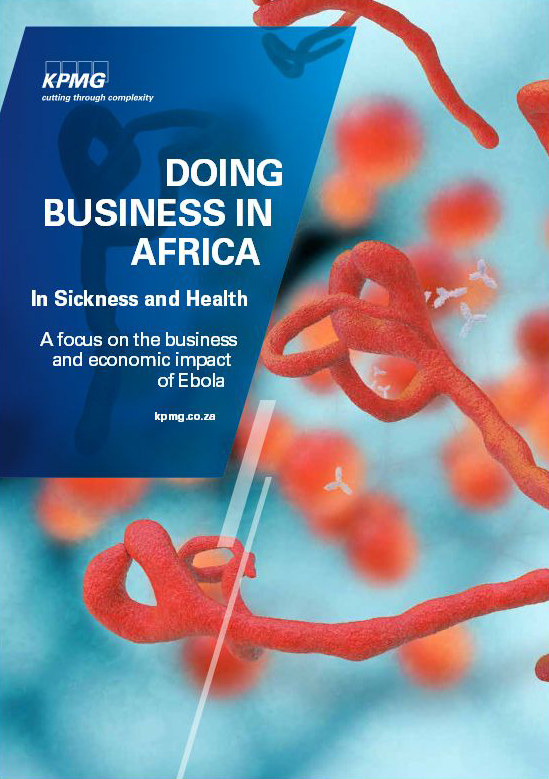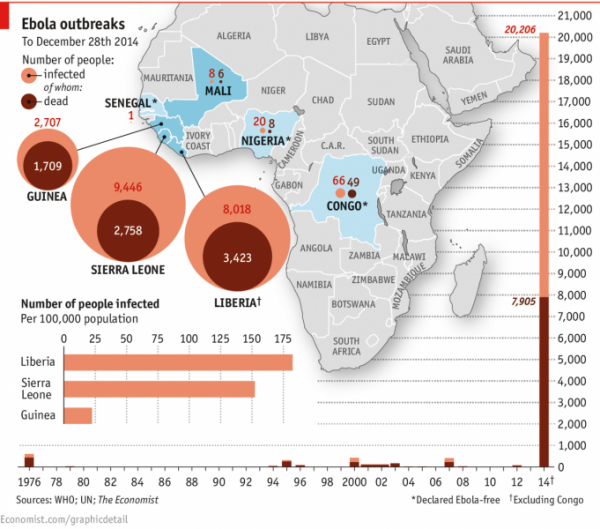 kpmg.com
kpmg.com
How does Ebola affect business and the economy in Africa?
We are one world; we are affected by the wellbeing of our neighbours and our business partners…
The stories of human suffering coming out of West Africa are staggering. The human cost of this strange disease, immense. The fall-out of the epidemic is not just health-related. It is also economic.
KPMG Africa has collaborated across our healthcare practices in West, East and Sub-Saharan Africa to explore the impact of Ebola, both on the affected countries as well as on the businesses of some of our key clients.
Despite the recent economic growth in these countries, the inherent weaknesses that persist in these healthcare systems have been exposed by the outbreak.
The negative impact of the outbreak on the economies of these countries has less to do with direct costs of dealing with the disease, than the costs of aversion behaviour.
For three countries, Liberia, Sierra Leone and Guinea, just recently able to bask in the rays of political and economic stability, the economic damage is depressing.



 Millions of mosquito nets are given out fight to malaria in Africa, yet many faced with hunger use them as fish nets, creating potential environmental problems.
Millions of mosquito nets are given out fight to malaria in Africa, yet many faced with hunger use them as fish nets, creating potential environmental problems. 

 Diplomacy is an inevitable, even necessary, part of running the world’s main health organization, vital to getting fractious countries to cooperate for the sake of global health, her critics acknowledge.
Diplomacy is an inevitable, even necessary, part of running the world’s main health organization, vital to getting fractious countries to cooperate for the sake of global health, her critics acknowledge.
Recent Comments